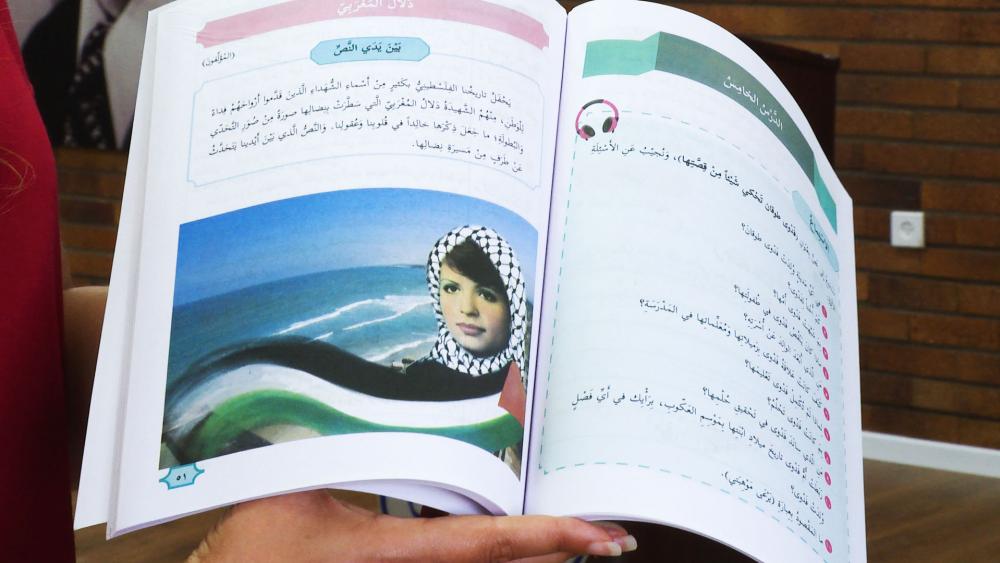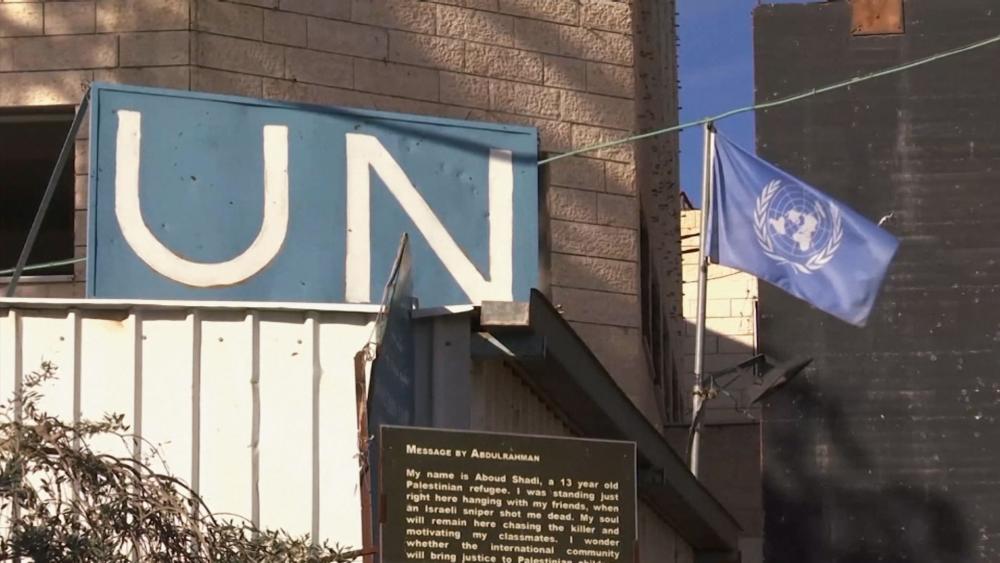Israeli Experts: UNRWA Textbooks Draw Palestinian Children Toward Terrorism
JERUSALEM, Israel – President Trump recently cut funding to UNRWA, the UN body responsible for Palestinian refugees. While there has been uproar over that decision, critics of UNRWA (United Nations Relief and Works Agency) point to its education system, claiming it could be encouraging a new generation of terrorists.
One example is Dalal Mughrabi. She's pictured in textbooks as a harmless, beautiful young woman in a Palestinian headscarf.
"But who is this? Dalal Mughrabi, who led a terrorist attack and murdered 38 people, including 13 children, on the coastal road of Israel in 1978," said David Bedein, founder of the Israel Resource News Agency.

UNRWA textbook featuring Dalal Mughrabi as a role model for Palestinian Arab children
Her picture appears in the fifth grade Arabic language textbook. It's part of a four-page lesson that hails Mughrabi as a martyr "who painted with her struggle a picture of challenge and heroism…the text in front of us provides a glance on the path of her struggle."
"In these four pages, they're praising her and saying what a hero she was and how the younger generation needs to act exactly the same as she did," Israeli Knesset Member Sharren Haskel said. "This is the kind of education that the younger Palestinian generation receives."
Haskel and Bedein spoke to journalists about reforms they believe need to happen.

MK Sharren Haskel and David Bedein brief journalists on content of UNRWA textbooks, Photo, CBN News, Jonathan Goff
"Some of the major problems with UNRWA are perpetuating the conflict and perpetuating the hatred and the violence between Palestinians and Israelis," Haskel said.
Bedein says there's no precedent for any schoolbook ever promoting the idea of killing people – not even the Nazis did that.
"There was never a schoolbook that praised the murder of Jews – not in the 30s and not in the 40s," Bedein told CBN News. "It happened, of course it happened (in the Holocaust). It happened en masse, but it didn't have the sanction of their school system, which demonized Jews but didn't say to kill Jews."

UNRWA textbook
CBN News asked UNRWA about the textbooks and education system. In a written statement, UNRWA spokesman Christopher Gunness gave the following response.
"UNRWA teaches in accordance with UN values and principles. By convention we teach the curriculum of host countries, i.e., the PA curriculum in the occupied territory [sic]. We review every book we use. We check for gender bias, age appropriateness and political neutrality. On average we have found less than 3 percent of the pages we have reviewed to be problematic. We have frameworks and procedures for supporting our teachers in dealing with these passages in books," Gunness wrote.
There are 515,000 Palestinian children in the UNRWA school system. Bedein says if even two percent take up the challenge to terrorism that would create more than 10,000 terrorists.
Bedein sees other issues with UNRWA.

UNRWA school propaganda
"UNRWA is different from any other refugee organization because other refugee organizations help people get on with their lives. UNRWA as a policy teaches the concept of the 'right of return' by force of arms," Bedein said.
That so-called right of return is also exaggerated by the very definition of Palestinian refugees.
"UNRWA'S got a completely different refugee definition than any other international organization. In UNRWA, a refugee status can be inherited, which means they do not fulfill their basic agenda for what they were created for," Haskel said.
"It continues to build bigger and bigger refugee camps, give them permanent housing, give them permanent health care, give them a permanent education system. This is the role of a country, not a relief agency," she added.
Haskel and Bedein hope that President Trump's action to cut funding will force UNRWA to make changes.




